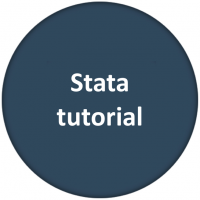Socius Call for Papers
Special issue on the Fragile Families Challenge
Guest editors: Matthew J. Salganik and Sara McLanahan
Socius, an open access journal published by the American Sociological Association, will publish a special issue on the predictive modeling phase of the Fragile Families Challenge. All participants in the Fragile Families Challenge are invited to submit a manuscript to this special issue.
A strong manuscript for the special issue will describe the process of creating a submission to the Challenge and will describe what was learned during that process. For example, a strong manuscript will describe the different approaches that were considered for data preprocessing, variable selection, missing data, model selection, and any other steps involved in creating the final submission to the Challenge. Further, a strong manuscript will also describe how the authors decided among the many possible approaches. Finally, some manuscripts may seek to draw more general lessons about social inequality, families, the common task method, social science, data science, or computational social science. Manuscript should be written in a style that is accessible to a general scientific audience.
The editors of the special issue may also consider other types of manuscripts that are consistent with the scientific goals of the Fragile Families Challenge. If you are considering submission a manuscript different from what is described above, please contact the editors of the special issue at fragilefamilieschallenge@gmail.com before submitting your manuscript.
All papers will be peer reviewed, and publication is not guaranteed. However, there is no limit on the number of articles that will be accepted in the special issue. All published papers must abide by the terms and conditions of the Fragile Families Challenge, and must be accompanied by open source code and a data file containing predictions.
Submissions for the special issue must be received through the Socius online submission platform by Sunday, October 1, 2017 Monday, October 16 at 11:59pm ET. If you have any questions about the special issue, please email fragilefamilieschallenge@gmail.com.
FAQ:
- Do I need to describe an approach to predicting all six outcome variables in order to submit to the special issue?
- Do I need to have a low mean-squared error in order for my paper to be published?
- What if I can’t afford the Article Processing Charge?
- How will you decide what manuscripts to accept for publication?
- Accuracy: The key question is whether this analysis was conducted appropriately and accurately. Were the techniques used in the manuscript performed and interpreted correctly? Do the claims in the manuscript match the evidence provided?
- Novelty: The key question is whether the manuscript will be novel to some social scientists or some data scientists. Because projects like the Fragile Families Challenge are not yet common, we expect that most submitted manuscripts will be somewhat novel.
- Interest: The key question for the editors is whether the manuscript will be interesting to some social scientists or some data scientists. Will some people want to read this paper? Does it advance understanding of the Fragile Families Challenge and related intellectual domains?
- Presentation: The key question is whether this manuscript communicates effectively to a diverse audience of social scientist and data scientists. We will also assess whether the figures and tables are presented clearly and whether the manuscript makes appropriate use of the opportunity for supporting online information. Because these manuscripts will be short, we expect that the supporting online information will play a key role.
- Who is the audience for these papers?
- Should we describe the Fragile Families Challenge in our paper?
- Will the articles go through peer review?
- What are the requirements for the open source code?
- How long will the review process take?
- Will I have access to the holdout data when writing my paper? (added July 20, 2017)
- Will I have access to the Challenge data when writing my paper? (added July 27, 2017)
- What if I want to submit to the special issue but I can’t exactly reproduce my submission to the Challenge? (added September 23, 2017)
- I have another question, how can I ask it?
No. We will happily consider papers that focus on one specific outcome variable.
No. Predictive performance in the held-out dataset is only part of what we will consider. For example, a paper that clearly shows that many common strategies were not very effective would be considered a valuable contribution.
Socius, like most open access journals, has an Article Processing Charge. This charge is required to keep Socius running, and it is in line with the charges at other open access journals. However, we strongly believe that the Article Processing Charge should not be a barrier to scientific participation. Therefore, the Fragile Families Challenge project will pay the Article Processing Charge for all accepted articles submitted by everyone except for tenure-track (or equivalent) faculty working in universities in OECD countries. In other words, we will cover the Article Processing Charge for undergraduates, graduate students, post-docs, and people working outside of universities. Further, we will pay the Article Processing Charge for all tenure-track (or equivalent) faculty working in universities outside the OECD.
If for any reason you think that the Article Processing Charge may be a barrier to your participation, please send us an email and we will try to find a solution: fragilefamilieschallenge@gmail.com.
Articles in Socius are judged by four criteria: Accuracy, Novelty, Interest, and Presentation. In the case of this special issue, these criteria will be judged by the editors of the special issue, with feedback from reviewers and the editors of Socius. For the purposes of this special issue, here is how these criteria will be interpreted:
All papers should be written for a general scientific audience that will include both social scientists and data scientists (broadly defined). In other words, when writing your paper you should imagine an audience similar to the audience at journals such as Science and Proceedings of the National Academies of Sciences (PNAS). We would recommend reading some articles from these journals to get a sense of this style. Manuscripts that use excessive jargon from a specific field will be asked to make revisions.
Manuscripts should follow the length guidelines of a Report published in Science: 2,500 words, with up to 4 figures or tables. Additional materials should be included in supporting online materials. We will consider articles that deviate from these guidelines in some situations. Other aspects of the manuscript format will follow standard Socius rules.
No. There is no need to describe the Challenge in your paper. The special issue will have an introductory article describing the Challenge and data. You should assume that your readers will already have this background information.
Absolutely. All manuscripts will be reviewed by at least two people. Possible reviewers include: members of the board of the Fragile Families Challenge, qualified participants in the Challenge, members of the general reviewer pool at Socius, and other qualified researchers.
The code must take the Fragile Families Challenge data files as an input and produce (1) all the figures and tables in your manuscript and supporting online materials and (2) your final predictions. The code can be written in any language (e.g., R, stata, Python). The code should be released under the MIT license, but we will consider other permissive licenses in special situations.
We don’t know exactly, but we are excited about having these results in the scientific literature as quickly as possible. Therefore, we will work as quickly as possible while maintaining the quality standards of the Fragile Families Challenge and Socius.
No, but we will allow you to request scores for your models on the holdout as described in this blog post.
Yes. If you will submit to the Special Issue you can continue to use the Challenge data until the Special Issue is published. If you are not submitting to the Special Issue, then you should delete the Challenge data file on August 1. Finally, participants who want to continue to do non-Challenge related research with the Fragile Families and Child Wellbeing Study can, at any time, apply for access to the core Fragile Families data by following the instructions here: http://www.fragilefamilies.princeton.edu/documentation.
Everyone in the Challenge was supposed to uploaded their code. But there are several reasons why they might not be able to use their code to reproduce their submission such as forgetting to set their seed or changes to the packages that were used in the submission (if you are interested, here are some general tips for promoting reproducibility Sandve et al (2013) “Ten Simple Rules for Reproducible Computational Research.”)
If there is a tension between making your paper reproducible and making it match the submission to the Challenge exactly, you should opt to make your paper reproducible. If the code and predictions that you submit with your paper don’t exactly match what you submitted to the Challenge, you should include a note in your supporting online material explaining these differences and why they occurred. If this note will require addition information from us—such as the score of your reproducible results in the leaderboard data—we will provide it to you. We are happy to help you with these issues on a case-by-case basis.
Send us an email: fragilefamilieschallenge@gmail.com.




